
Blog: Mind of a Mind Reader
Jeff Newman: Mentalist, Magician, Trickster.

7 Tips On How To Put Your Best Zoom Face Forward
Unless you are a seasoned professional, it's tough not to feel at least a little self-conscious on video.
I mean, think about it…at the best of times, people have no idea how to act in front of a camera. But now, work, play, happy hours with friends, family get-togethers…they’re all taking place on video calls.
Every day, we’re faced with cameras pointed at ceilings, fuzzy video, and endless streams of “can you hear me’s.” But fear not. Over the past year, I’ve become a Zoom Master, and I’m here to give you seven tips to put your best face forward and look like a video-call All-Star.

7 Ways To Break The Ice At Your Next Zoom Meeting
Talking to people is hard.
Whether it’s a breakout session with co-workers or networking with someone new, it can be tough to find common ground and make conversation. And that was before Zoom was ever a thing. Back in the Before-Zoom Era (or the BZE, as I’m sure future archaeologists will call it), you could quietly hide behind your drink, talk about the weather, rush off to the bathroom and hide, or anything else to avoid those awkward moments.
On Zoom, it’s just you, your camera, and everyone else on the call. You’re looking at them, they’re looking at you, and there’s nowhere to go, nowhere to hide. Or it’s the umpteenth meeting this week, and you’ve run out of things to talk about with your co-workers days ago, and that Zoom Fatigue is really starting to set in.
So, how do you break through and start those conversations? I’ve got seven ideas that will help break anyone out of their virtual shell!
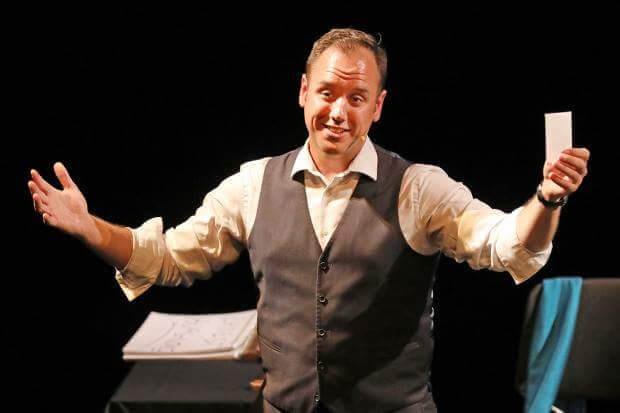
Rethink Your Event Planning: Add Some Fun!
Recently, I had an unusual gig. Rather than my usual theatre show or after-dinner event entertainment, I was asked to perform my magic and mentalism schtick and MC an event hosted in a store, where all their suppliers came to showcase all of their hot new things for the year. I would do a bit of magic, introduce two or three presenters, do a little more magic, and lather, rinse, repeat until the end of the event. It's the kind of gig I do often enough to have it in my corporate magician skill set.
After the event was over, the client came up to me and told me how thrilled she was about the event. She was not only impressed by the magic that happened on stage for her guests, but was also very pleased about how the crowd was interested, engaged, stayed at the event much longer than expected, and (hopefully) became more informed customers that helped my client make a profit.
It was a great event all around, and when it was all over, I was thanked abundantly for helping make their event a smashing success.
And, while this particular gig is a bit different from the norm, the reaction of the client at the end of it was one that I’ve seen time and time again. And while they could have done what they did before with the same results as before, they decided to add an extra little spark and hire a professional. And what did that do for their event?
It made it fun.
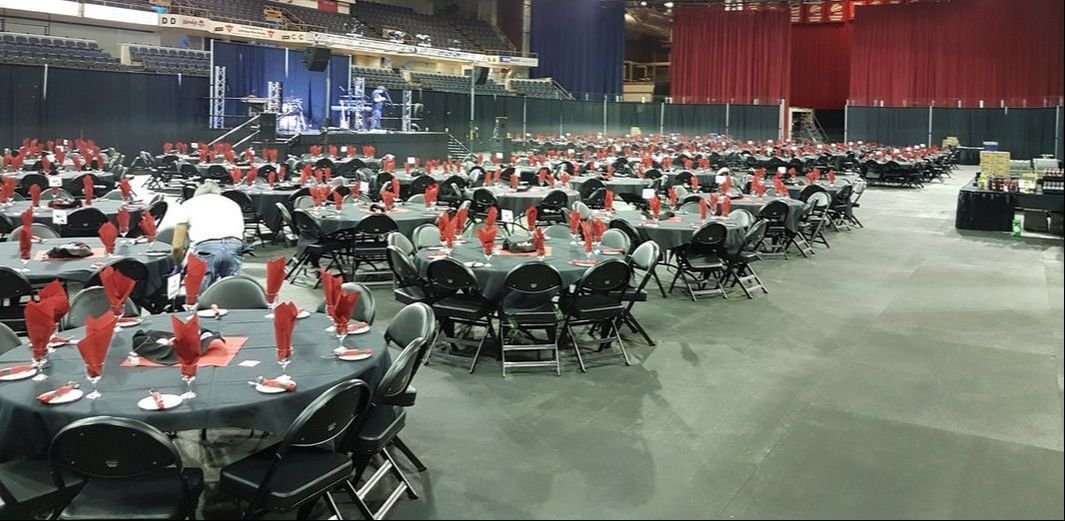
8 Steps To A Top-Notch Fundraiser Event
Even though this is what I consider my downtime during the year, the truth is I’m just as busy as I usually am. The difference is instead of my time being spent on stage or on the road, it’s being spent in my office. My days are filled booking private events, preparing for my summer tour, researching and writing, and doing all the other administrative things that make my job as a mentalist, magician, and entertainer keep chugging along.
This is also the time of year where I get a good chunk of my fall and winter bookings, and good number of them are for fundraising events: fundraisers for charities, fundraisers for animal shelters, fundraisers for non-profit organizations, fundraisers for local community groups...the list is endless. And a lot of the time, the people putting on these events are old pros. They’ve got years of experience putting together these events, and have everything planned out to the last detail, things booked months in advance, and the whole process is one big self-working machine.
But every once in a while, I find myself working with a first-timer. It’s either their first time putting on an event, or their first time doing an event on this scale, or even their first time setting foot in a gala or fundraiser, let alone planning one. And not to say that they can’t do it; a lot of the time these first-timers do an amazing job. But sometimes, planning these events can leave you pulling out your hair in frustration. And whether you’re a first-timer or an old pro, there’s a few things that can help make putting on these events not only a little less stressful but make it the talk of the town.
So, I've put together a step-by-step guide on how to put on a night that will make you look like a fundraising pro.
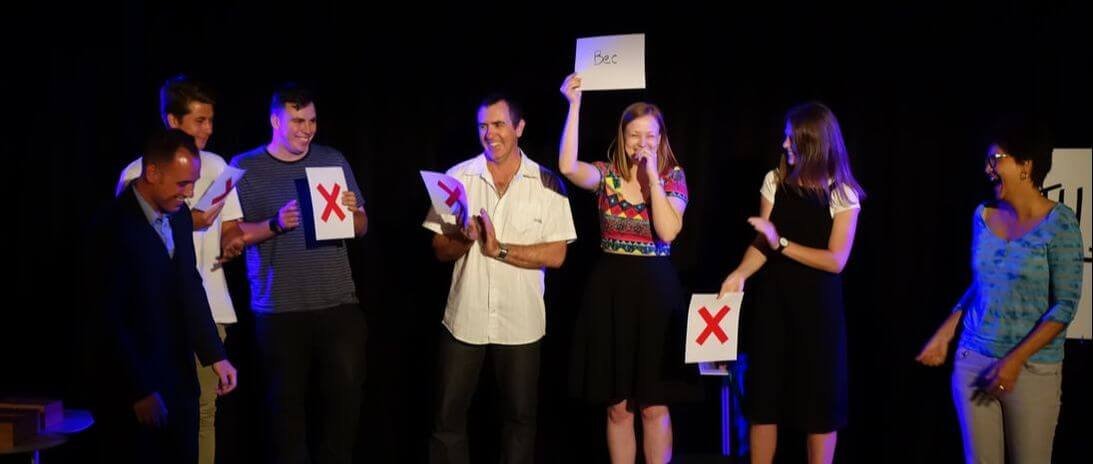
5 Reasons Why You Need To Have A Magician At Your Event
Over a given year, I split my time between doing public theatre shows, and private events like Christmas parties, fundraisers, galas, weddings, and the like. For a lot of people, the thought of hiring a magician for their event never even crosses their mind. And a good number of my first-time clients are these people. Now, I don’t mean that this is their first time hiring me before. I mean, I’m the first magician/mentalist/something-other-than-a-guy-with-an-iPod-and-a-speaker they’ve ever brought into their event to provide some entertainment ever.
And it always goes the same way: I show up, amaze the pants off the guests, and later, when I speak to the organizer about the event, they say something like, “WOW, that was amazing. Thank you so much! Everyone loved it...we’re still talking about it! I’m so glad I decided to do something different for our event this year and bring you in.”
The fact is, for many reasons, adding entertainment like a magician or mentalist to your event can be a HUGE boost to whatever you’re planning. And a lot of my first-time clients never anticipated the added bonuses of professional entertainment at their event.
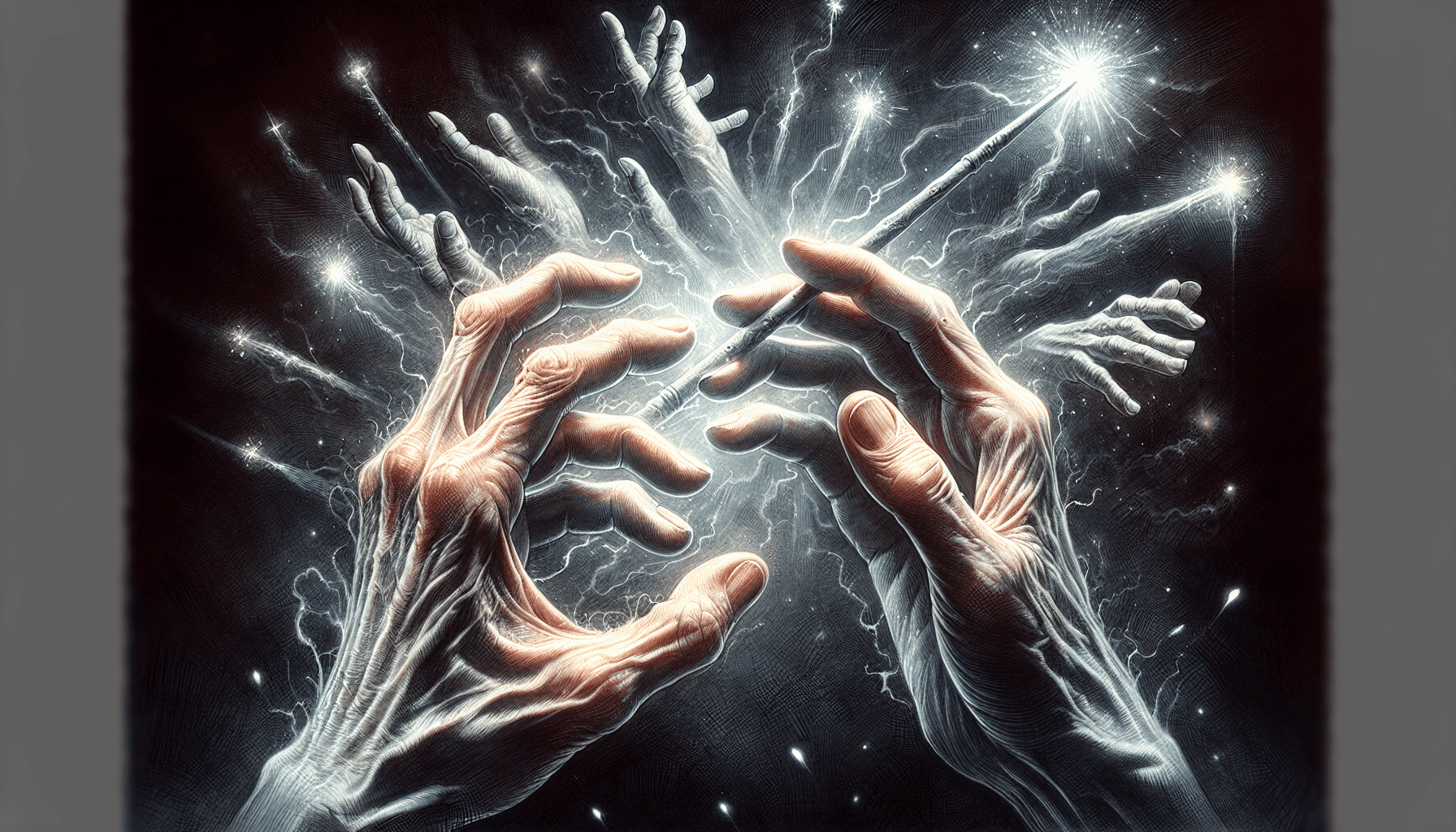
A Magician's Worst Nightmare
For those of you who are unaware, I have a university degree...in Kinesiology. Which I usually joke is a “degree for lifting heavy things for fun and fitness,” but the truth is, it provided me with an extensive knowledge of the why’s, how’s and what’s of the human body...including a pretty in-depth knowledge of human hand anatomy.
So once the first shock of panic and pain from the accidental slice occurred, the logical side of my brain automatically started doing an assessment of what could be wrong. With all the suspense of a Prime Time medical drama, I started to identify and landmark all the tendon, nerve, ligament, and muscle tissue locations that run through a thumb. Once the glass jar was removed and blood started to flood the area, the lack of visual accuracy and sudden increase of pain put a cease to the impromptu examination, but definitely didn’t put a cease to the panic that was going through my mind.
Why the panic? Because the thumb (and honestly, all your fingers and toes for that matter) are actually quite complex and delicate. We don’t usually put a whole lot of thought into it...mostly because we use our hands for everything. Cooking food. Reading books. Performing magic tricks. Changing tires. Building houses. Our hands get put through some pretty tough stuff, but in reality, it doesn’t take much to do some serious damage.
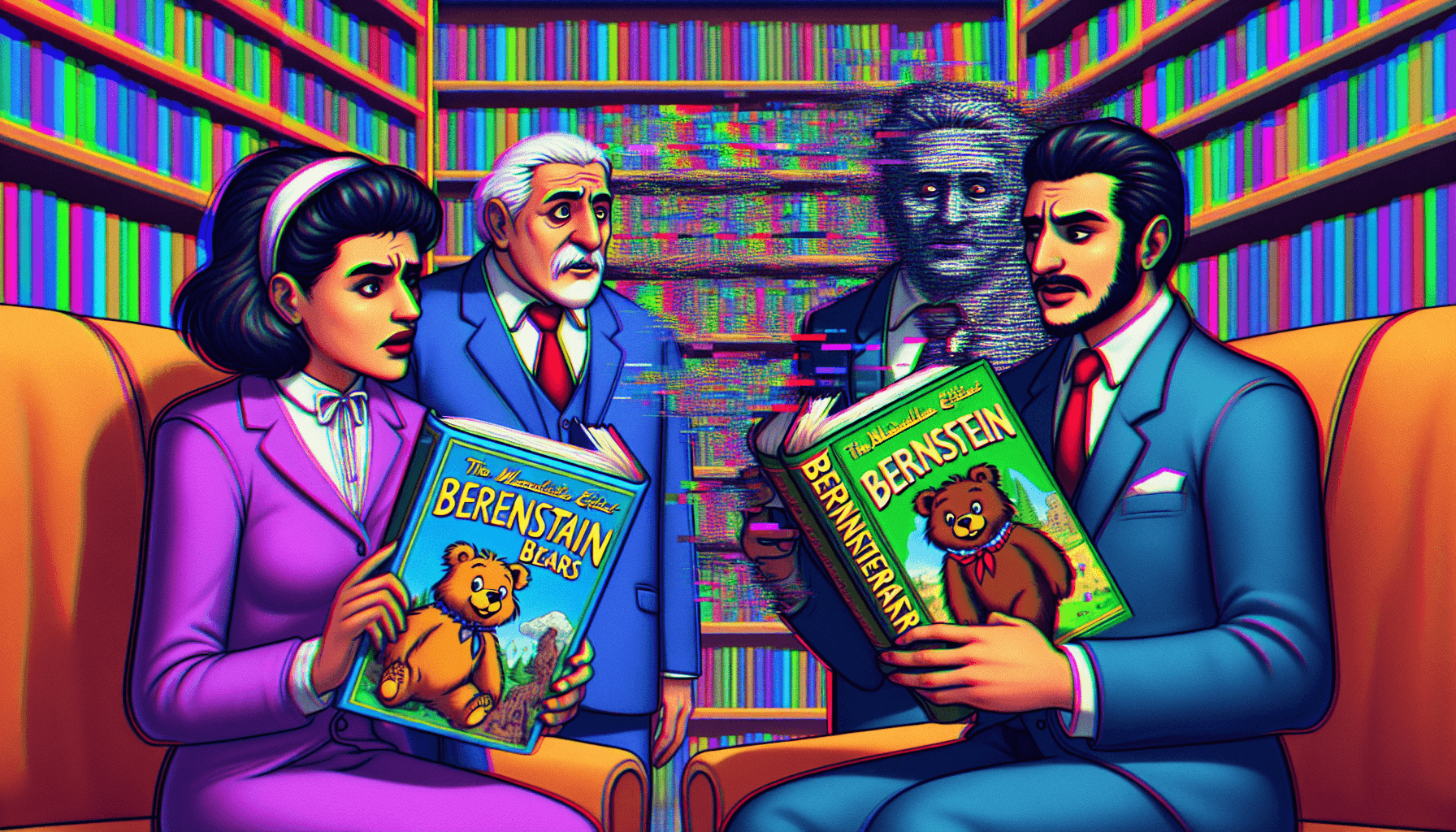
WHAT DO YOU REMEMBER?
What is the Mandela Effect?
Well, to put it simply, it’s a memory you possess about something that you are absolutely sure is true, but isn’t. But, it’s not just you. Hundreds - or even thousands - of people remember the exact same thing.
For example, a very large amount of people grew up reading The Berenstein Bears: a wonderfully innocent, wholesome series of children’s books that taught valuable morals through the family life of anthropomorphic cartoon bears.
Except that’s wrong. It’s the Berenstain Bears.
Many, many people are convinced that the names of these bears are, and always have been Berenstein (and, coincedentally, one of those people is Hannah).
Countless examples of this strange phenomena exist. Many people remember Pikachu’s tail having a black tip (it doesn’t). Or growing up watching the classic children’s cartoon The Looney Toons (actually spelled Tunes). Or that Carrie, Charlotte, Miranda, and Samantha all had wacky adventures in Sex in the City (but it was actually Sex and the City). Or that the air-freshening spray Febreeze is spelled with three E’s (It’s not; it’s Febreze). Or that the comedian Sinbad starred in a movie in the 90’s called Shazaam where he played a genie (he didn’t).
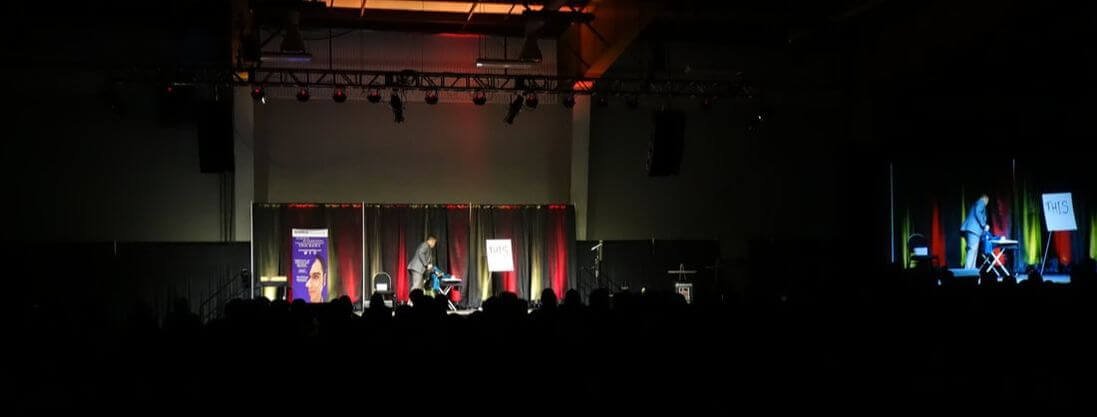
6 Tips To Make Your Event Amazing
It’s Booking Season. You know, the season where I sit down, answer emails, make phone calls, and schedule meetings to book shows for the following year. Now these shows can range from thirty people in a basement, to five hundred people in a conference center or theatre.
But a least a few times a year, I come across someone planning an event that has a boatload of other questions that usually pertain to the rest of the event. Sometimes, it’s about catering. Or, it’s about audio and lighting. Other times, it’s about how to make whatever the event is special or unique in some way. And, being an expert event-goer, I’ve been to my fair share of events from every edge of the spectrum. And this year, I’ve had a few back-to-back requests about how to really add some pizazz to upcoming events that clients are hosting. So, to help all the would-be planners out there, I’ve decided to put together a little list on how to add some simple things to make your event pop.

Magic: A Scientific Approach
Recently, my fiance and I were sitting with in my living room with a magically-inclined friend of mine. We had spent the afternoon discussing a few projects we all had on the go, and like these discussions usually do, we all went off on our unique tangents into stories, Youtube videos, and archival photos in our various social media profiles. You know what that’s like, right? Of course you do.
Now despite this wizard-friend knowing me for at least two or three years, she was unaware of my previous lives that have led me to the current magic-and-mentalism-based career I’ve chosen. Just to catch you up, before I was a professional mentalist, I was a baseball player, a bartender, an undergraduate scientist, an actor, and improviser, and of all things, a poster-child for the University of Lethbridge (which, in fact, was the direct result of my combined expertise in the “scientist” and “baseball player” fields...Maybe I’ll tell that story at a later date, but for now, back to the original story).

How To Become A Mind-Reader
When most people see or hear about what I do, there's a batch of inevitable questions that I expect to encounter from curious audience members. They have different variations, but they're all usually based in one of the following:
"How did you do that?!"
Can't tell you. If I did, not only would I be an absolutely terrible mentalist, but I can guarantee you'd be utterly disappointed.
"Tell me: does what you do give you an edge with the ladies?"
Nope. I'm just as scared of women and rejection as the next guy. (Luckily, I've managed to trick one into thinking I'm awesome, so I don't have to worry about it anymore.)
"But really though, do you have, like, intuition, or something?"
No. Although every once in a while, I manage to know exactly what the aforementioned lady wants for dinner before she says anything.
And, finally:
"How did you get into doing this? How does one become a mentalist?"
I like to think that the answer they're expecting is something like, "Well, I was an ambitious student at the Institute Of Magick And Mind-Reading in London where I spent unfathomable time and tuition dollars on honing this particular craft. Once I graduated, I decided to break my oath to keep my powers a secret in order to come here, tonight, and entertain you." The inquirer usually has a look of disappointment when I tell them that I learned how to do what I do by simply reading and research, rather than some fantastic story about attending a special school, being born with childhood "powers," or running away to join a circus and befriend a psychic gypsy-lady. From a distance, becoming a mentalist or magician looks an awful lot like getting a college degree. Research, read everything you find, practice what you've learned, and go back and re-learn when you make a mistake. While "I learned it from a book," is a very simplified explanation, it's basically how it is. At least, that's how I acquired the skills to be a mentalist. But, the steps that lead me there are far more interesting.
After hearing this question a bit more than usual lately, I began to think about it a little more thoroughly. So, I've decided to give you, dear reader, a step-by-step guide of how Jeff Newman: Mentalist came to be.
